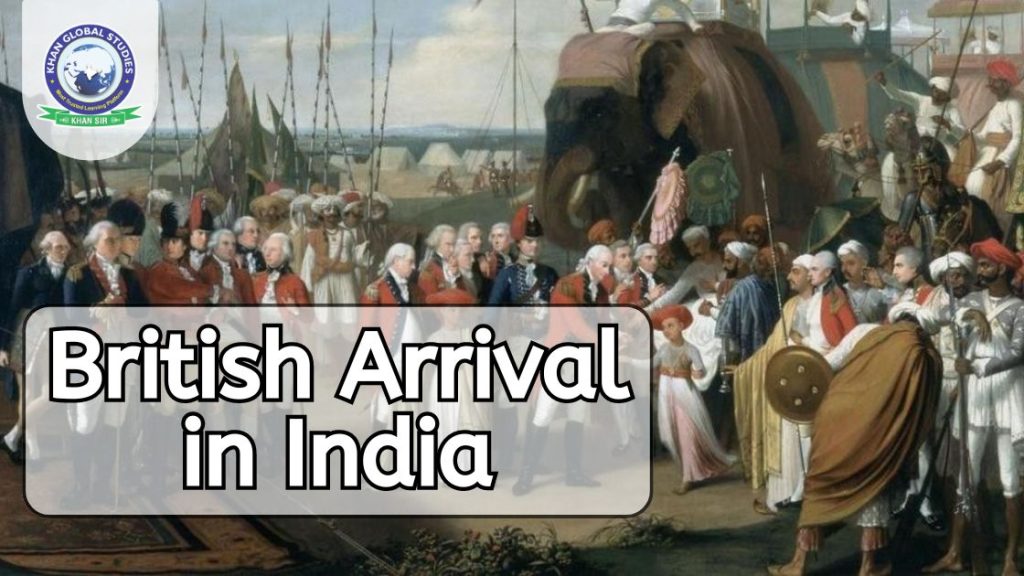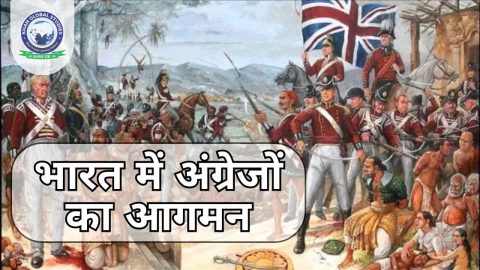The arrival of the British in India took place in the late 16th century when European powers were exploring sea routes for trading purposes. This arrival was a turning point in the history of India, which deeply influenced the political, social, economic and cultural life of the country.
Reasons for the arrival of the British in India
- Trade: European powers were attracted by India’s profitable trade in spices, textiles and other commodities.
- Exploration: European explorers were looking for new sea routes that could give them access to Asia’s rich trade.
- Colonialism: European powers were eager to establish colonies and establish their control over foreign lands.
The Arrival of the British and the Phase of Colonialism
- European explorers discovered sea routes in the mid-15th century, which marked the beginning of colonialism in India.
- Established in 1600, the British East India Company (EIC) entered India for trading purposes.
- In 1608, Captain William Hawkins established the first EIC factory in Surat.
- During the 17th century, the EIC consolidated its hold by establishing “factories” and forming alliances with regional powers.
- In the 18th century, the EIC’s victories at the battles of Plassey (1757) and Buxar (1764) gave them political power in Bengal.
- In the 19th century, the EIC established its control over all of India, creating “British India”.
British East India Company
- Founded in 1600, the EIC was a trading company that gradually gained political control over India.
- The EIC’s rule was controversial, including allegations of exploitation and corruption.
- After the 1857 revolt, the British government dissolved the EIC and established direct rule over India.
In this period (1674 – 1698)
Resistance from the natives was suppressed by force, making Calcutta the center of British activity in the province of Bengal.
In this period (1700 – 1800)
The final collapse of the Mughal Empire opened the way for European powers to gain control of India. The East India Company created its army in India to facilitate trade. Their dominance over India was established with the victory led by Robert Clive in the Battle of Plassey in 1757. All the basic social, political and economic structures for long-term rule in India for the next 200 years were built.
In this period (1800 – 1900)
- The British Raj in India faced resistance. The Indian Rebellion of 1857 also called the Indian Mutiny or Sepoy Mutiny marked a turning point in Britain’s history in India. Resentment began to grow during this period.
- The East India Company was abolished and India came under the formal rule of the British Raj.
- Reforms such as religious freedom and the recruitment of Indians in the civil services.
- The Viceroy became the symbol of British rule in India.
- Lord Curzon became the Viceroy in 1898. He implemented very unpopular policies, which led to the rise of the Indian nationalist movement.
In the period (1900 – 1947)
- Indians gathered power across India to achieve independence. India finally became independent in 1947.
Must Watch
The growing influence of the East India Company
- In the 18th century, the East India Company began to expand its political power in India.
- After victories in the battles of Plassey (1757) and Buxar (1764), the East India Company established control over Bengal.
- Gradually, the East India Company established its dominance over the whole of India, creating “British India”.
Effects of British rule
- Economic: British rule brought about widespread economic changes in India, including industrialization, infrastructure development, and changes in agriculture.
- Social: British rule brought about deep changes in Indian society, including changes in education, religion, and social customs.
- Political: British rule established a centralized administrative system and legal system in India.
Independence Movement and British Withdrawal
- During the 19th and 20th centuries, a strong independence movement emerged, led by the Indian National Congress.
- India gained independence in 1947, which ended British rule.
Conclusion
The British Empire had a profound and lasting impact on India. Even after gaining independence in 1947, the legacy of British rule can still be felt in India today.




